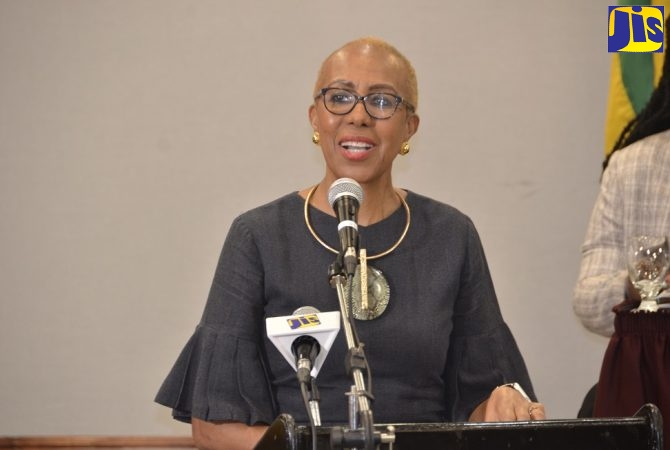The Government will be implementing a strategic and integrated programme of education aimed at transitioning students into the labour market upon completion of secondary or tertiary education, says Minister of Education and Youth, Hon. Fayval Williams.
Mrs. Williams, who was the keynote speaker at the Association of Caribbean Higher Education Administrators (ACHEA) 20th annual conference at the Royalton Negril Resort on July 6, said the initiative will also include a standardised programme for the pre-primary to the secondary level and linked to tertiary education and skills training.
She pointed out that discussions focused on improving critical components of the tertiary or higher education sector have been ongoing.
These, she said, include issues relating to increasing access, funding for students and institutions and the relevance of programmes within the context of the changing needs of the labour market.
“These discussions have been informed and shaped by best practices employed in other jurisdictions,” the Minister said.
“Jamaica’s tertiary education and training system has a strong reputation and has contributed significantly to national growth and development. However, there are some areas of challenge that need to be addressed,” she noted.
The Minister cited the existence of a fragmented governance and oversight framework that needs to be integrated and modernised.
“Also, there is a misalignment between the programmes being offered and the needs of the labour market,” Mrs. Williams said.
he Minister pointed out that in some instances, programmes are being offered based on tradition “or ready supply” and not based on labour market demand.
This, she said, oftentimes lead to inadequate tertiary education programmes to support emerging labour market needs in the logistics, knowledge, and business process outsourcing sectors, “as well as to resource traditional areas, such as agriculture and tourism and hospitality”.
“Tertiary education and training continue to provide important social benefits, and, therefore, represent a wise financial and personal investment. Notwithstanding, there is an urgent need to transform the present system so that its potential and role as the driver of socio-economic mobility and national growth and development is fulfilled,” Mrs. Williams further argued.
She noted that there have been significant efforts over the years to establish a modernised governance framework for the oversight and management of the higher education sector in Jamaica, and that the 2021 Report of the Jamaica Education Transformation Commission, led by Professor Orlando Patterson, provides the impetus for current actions.
The Minister said that the Government continues to invest significantly in the education sector from early-childhood, through primary, secondary, and post-secondary levels with a focus on ensuring affordability, accessibility and quality.
She said it has not been lost on the Ministry that voices have been calling for amendments in the Government’s funding formula to increase the amount allocated to early childhood vis-à-vis the tertiary sector, adding that the proposal here is to strengthen the foundation of the education sector to achieve better outcomes in the ensuing years as students progress through the system.
“The related discussions are ongoing as we continue to address the varying demands at the different levels and recognising that this need not be a zero-sum game,” the Minister noted.
“Discussions surrounding how higher education and training is administered must, therefore, consider how the sector will ensure that programmes offered are intentionally designed to support the changing societal and labour market needs,” she added.



